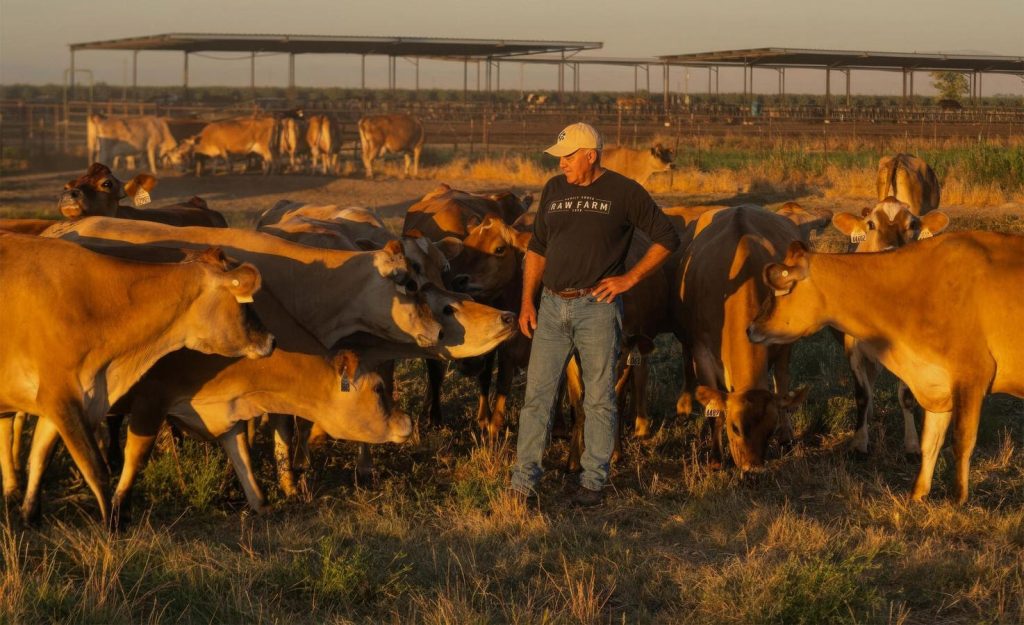Raw Milk Empire Defies Health Concerns, Eyes Expansion Under Potential RFK Jr. HHS Leadership
Raw Farm, the nation’s largest raw milk producer, has defied health warnings and regulatory hurdles to achieve over $30 million in sales, fueled by a growing consumer base seeking alternatives to pasteurized products. The company, led by Mark McAfee, a self-proclaimed "raw milk guy," has positioned itself at the forefront of the raw milk movement, advocating for its purported health benefits and challenging traditional dairy practices. With the potential appointment of Robert F. Kennedy Jr., a known raw milk advocate, to the position of Secretary of Health and Human Services under a Trump administration, Raw Farm anticipates even greater growth, projecting sales to reach $100 million within the next three years. This ambition comes despite recent setbacks, including product recalls due to avian influenza contamination and a subsequent quarantine of their dairy herds.
The company’s trajectory has been marked by both controversy and resilience. While raw milk proponents tout its health advantages, federal health regulators, including the CDC, have repeatedly warned about the risks associated with consuming unpasteurized dairy products. These risks include infections from pathogens such as salmonella and campylobacter, which can cause severe illness. The recent bird flu contamination further underscores these concerns, highlighting the potential for raw milk to harbor dangerous viruses. However, Raw Farm dismisses these concerns, attributing the increased scrutiny to regulatory overreach and viewing the bird flu incident as a temporary setback that will ultimately strengthen their herd’s immunity.
Raw Farm’s operations are concentrated in California, one of the few states where raw milk sales are legal. This legal landscape reflects the complex interplay of consumer choice, health regulations, and political ideologies. Proponents of raw milk often align with organic food enthusiasts and those who advocate for less government intervention in personal choices. This alignment has created a dedicated consumer base willing to pay a premium for raw milk, despite the potential health risks. The company’s business model capitalizes on this demand, charging significantly higher prices for raw milk compared to pasteurized alternatives.
The McAfee family, which owns and operates Raw Farm, has a long history in agriculture, dating back generations. Their journey into the raw milk business began with a simple website for their organic dairy farm, which attracted inquiries from consumers seeking raw milk after a major Los Angeles producer closed. The overwhelming demand witnessed during their first delivery to Los Angeles cemented their belief in the market potential for raw milk. This initial success spurred them to expand their operations, adding raw butter, cheese, and kefir to their product line. However, their expansion has been met with consistent pushback from regulatory bodies, resulting in numerous shutdowns and legal battles.
The McAfees view these regulatory challenges as part of their mission to provide consumers with access to raw milk. They have invested heavily in their own pathogen testing lab, equipped with PCR machines, to demonstrate their commitment to safety. Despite these efforts, the FDA and other regulatory agencies remain skeptical, citing the inherent risks of unpasteurized dairy products. This ongoing conflict between the company and regulators reflects a broader debate about the balance between consumer choice and public health safety.
Looking ahead, Raw Farm plans to further expand its product line, positioning itself as a "healthy lifestyle brand." This expansion may include other unprocessed, low-ingredient products, targeting health-conscious consumers. The company remains committed to family ownership, resisting venture capital investments despite facing financial challenges due to regulatory actions. The McAfees’ unwavering belief in the benefits of raw milk and their determination to challenge conventional dairy practices continue to drive their business, even in the face of ongoing controversy and potential health risks. They believe their consumer-centric approach and commitment to unprocessed products differentiate them from traditional dairy producers, and they remain confident in their ability to navigate the complex landscape of food regulations and consumer demand.


